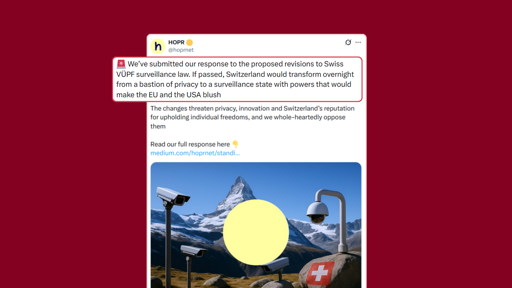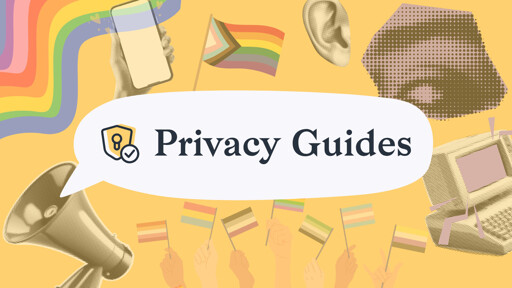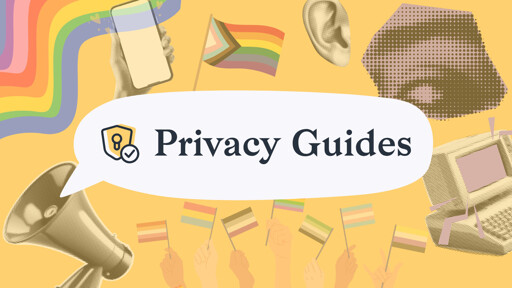- 17 Posts
- 226 Comments

 2·3 months ago
2·3 months agoThose two should not be counted in the same category.

 3·3 months ago
3·3 months ago“If implemented correctly” is doing a lot of heavy lifting in that statement.

 26·3 months ago
26·3 months agoAffects is such a strange way to put it. Like, “they caught a case of child labor.”

 222·3 months ago
222·3 months agoCan it hurry up and ruin the AI hype, too?

 72·3 months ago
72·3 months agoWaiting for the next headline where we find out the AI has been taking bribes.

 14·3 months ago
14·3 months agoI wonder how many people are found nowadays by searching vs being delivered by the algorithm.

 13·3 months ago
13·3 months agoIn a post where she signs the open letter, ActivityPub co-author Christine Lemmer-Webber summarises the changing world well:
“This is actually a really important time for that message to come across, because our communities do both face major threats which I believe we are ideologically aligned in wanting to face:
We are facing a large number of laws which appear well-intentioned and aimed to try to take on tech gatekeepers, but unintentionally build regulatory moats that allow only gatekeepers to participate, and which threaten user freedom at large.
The rise of techno-fascism and omnisurveillance affects all users. Neither ATProto nor ActivityPub, at present, are built in such a way that they can provide the levels of protections necessary to respond to the needs of activists and community members against nation-state level threats.
These are our existential threats, not each other. And we need to figure out how to work together.”
I’m reading this as “be nice to the Bluesky guys, because we have a bigger problem to deal with.”
That’s fine, I’m not inclined to be mentally ill at strangers on the internet.
But I’m also not going to call it decentralized when it’s meaningfully not, and I’m going to keep an eye on where their money comes from.
We have a common enemy in government control.
But if you’re going to be my friend, I need you to not lie to my face.

 13·3 months ago
13·3 months agoCame looking for this comment and was not disappointed.

 30·3 months ago
30·3 months agoPetition for Silksong to be considered an honorary patient gamer game, given I waited seven years to play it.

 66·3 months ago
66·3 months agoLeeds told Ars that the RSL standard doesn’t just benefit publishers, though. It also solves a problem for AI companies, which have complained in litigation over AI scraping that there is no effective way to license content across the web.
"If they’re using it, they pay for it, and if they’re not using it, they don’t pay for it.
…
But AI companies know that they need a constant stream of fresh content to keep their tools relevant and to continually innovate, Leeds suggested. In that way, the RSL standard “supports what supports them,” Leeds said, “and it creates the appropriate incentive system” to create sustainable royalty streams for creators and ensure that human creativity doesn’t wane as AI evolves.
This article tries to slip in the idea that creators will benefit from this arrangement. Just like with Spotify and Getty Images, it’s the publisher that’s getting paid.
Then they decide how much they’ll let trickle down to creators.

 23·3 months ago
23·3 months agoSincere question: Why was there a separate mobile domain in the first place?

 17·3 months ago
17·3 months agoWho asked for this?

 13·3 months ago
13·3 months ago“I pay for access to music I get access to music.” And with ChatGPT, you pay for access to an LLM, and you get access to an LLM.
Just because you personally don’t value that as a service doesn’t inherently invalidate it as a business model, now or in the future.
Netflix lost subscribers in 2011 and 2022, that didn’t kill the company. Uber stock tumbled during the pandemic and again in 2022. In 2023, Wired was writing about how “despite its popularity… [Spotify] has long struggled to turn consistent profits.”
This is a whole wave of companies where the survivors seem financially stable now, but had a long history of being propped up by venture capital and having an unclear path to profitability.
The only thing you’ve successfully shown is different so far is that you don’t think it’s a real service.
I generally agree, but I still don’t see anything that differentiates its trajectory from the Spotifys, Ubers, and Netflixes of the world.
I don’t understand the purpose of the letter.
Bluesky is, in practice, not decentralized.
It has the potential to decentralize, but if the community stops calling bullshit when Bluesky claims to already be decentralized, it would lose the one incentive it has to actually follow through.

 13·3 months ago
13·3 months agoWhat are you talking about? ChatGPT, Claude, Gemini, etc. all have “subscription fees generating recurring revenue” and are famously “exploiting a gap in regulations to undercut an existing market.”
Uber took 15 years to become profitable, and Spotify took 18 years.
Again, I’m not defending any of them (they all exploit the people who make their service work), but so far AI seems to be going down the same road.

 3·3 months ago
3·3 months agoIsn’t that the case with a lot of modern tech?
I vaguely recall Spotify and Uber being criticized relying on the “get big first and figure out how to monetize later” model.
(Not defending them, just wondering what’s different about AI.)

 354·3 months ago
354·3 months ago13.5%, slipping to about 12%
I know that 1.5% could mean hundreds of businesses, but this still seems like such a nothing burger.












That’s so blatant.
Probably the only reason it isn’t working is that the company behind it is based in Silicon Valley.
They’re going to have to find someone “from around here”. (And go behind their backs to pay off city leadership.)